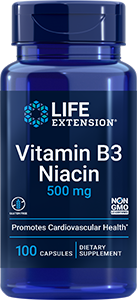| Phospholipids are an integral component of all cells in the body, without which the integrity of cell membranes would fail, as would cellular function. In the brain omega-3 fatty acids are incorporated liberally into cellular phospholipid bilayers; DHA alone accounts for 40% of the phospholipid content of neuronal membranes. Along with EPA, DHA plays a central role in neurotransmitter signaling and synthesis, and together the omega-3 fatty acids modulate numerous aspects of cognition and behavior. Evidence suggests that the typical Western diet is severely deficient in beneficial omega-3, and supplies omega-6 in excess, which creates a fatty acid milieu that promotes inflammation and contributes to several age related degenerative diseases. Numerous studies have concluded accordingly, indicating that supplementation with omega-3 fatty acids optimizes cognitive health. Slightly less than two grams of fish oil daily, over a 24-week period, was shown to significantly improve scores on a standardized assessment of cognitive function in subjects with mild cognitive impairment. Increases in red blood cell EPA confirmed that supplemental fish oil was biologically available and responsible for the improvement in cognition. A similar, but longer-term, study involving nearly 1,500 subjects found that daily omega-3 supplementation was independently associated with a dramatic reduction in cognitive decline over a 1.5 year period in an aging study population, compared to those not taking omega-3 supplements. Importantly, this study also found that dietary fish consumption was not associated with cognition, while omega-3 supplements were, highlighting the superiority of supplementing with omega-3 for supporting brain health. In addition to the numerous studies that have associated increased dietary omega-3 intake with better cognitive performance, a more detailed study confirms the principle role of DHA in mediating this improvement. Researchers assessed serum phospholipid levels in 280 middle-aged (35–54) healthy study volunteers, which were then correlated to cognitive function. It was found that subjects with the highest serum levels of DHA performed significantly better in multiple domains of cognition than their cohorts with lower DHA levels. This association remained significant even after adjustment for various other confounding factors. | Interactive Life Extension Magazine® August, 2011 issue now online! 
This e-issue of Life Extension Magazine® is extraordinarily easy to use, easy-to-navigate … with the same flip-the-page feeling you get from your printed copy, plus a few extra advantages. You can choose to search out a topic or keyword. Skim quickly. Skip ahead. Even order products. The little known link between bone health and total health,by Ron Perez
Find out how a comprehensive nutrient regimen, including calcium, trace minerals and vitamins D3 and K optimizes bone health and total health. Life Extension interview with Dr Bruce Ames, by Philip Smith
Best known for his groundbreaking research on mitochondria, the UC Berkeley professor emeritus discusses his innovative Triage Theory of Aging. Lipoic acid reverses mitochondrial decay, by Michael Anderson
Age-related mitochondrial decay in turn lies at the core of most degenerative diseases. Lipoic acid may induce a profound regeneration of these cellular powerhouses, thwarting the onset of cancer, heart disease, and more. What else increases my risk for osteoporosis? By Lara Pizzorno, MA, LMT and Jonathan V. Wright, MD
Lara Pizzorno and Jonathan Wright, MD, show how drugs, surgery, and other factors threaten bone health in this enlightening excerpt from the book Your Bones. Delay skin aging with cutting-edge topical DNA technology, by Gary Goldfaden, MD and Robert Goldfaden
Dermatologists have recently identified a key topical nutrient that may turn back the clock on skin aging. http://viewer.zmags.com/publication/9c3aadee |















